Jazz Musician? Korean Creative Musician!
_Interview with Soojin Suh, Finalist for the Showcase of jazzahead!
Il-Song Kim (editor-in-chief of TheApro)
“I’m Soojin Suh, Korean creative musician and drummer.”
Korean creative musician, drummer and composer... Soojin Suh not only has many ways of calling herself but she also carries out a wide variety of activities. While working as an individual musician, she is the leader of the Chordless Quartet and Coloris Trio and the drummer of the Near East Quartet and Baum Sae. It would be rare to find such an active musician in the Korean jazz scene. But she may not like the expression “jazz scene.” You will find why in the following interview with her.
 |
| Soojin Suh ⓒ Seung Yeol Nah |
It is a bit late but I would like to congratulate you on being selected for the showcase of Jazzahead. Could you explain what the event is about?
Jazzahead is an event taking place in Germany. It is one of the largest arts markets in the world along with WOMEX. While WOMEX is focused on world music,Jazzahead is a festival bringing jazz from all around the globe. I was selected for the showcase last year but the event had to be postponed at that time. I was actually supposed to perform there this year but the live event was canceled again. So I will perform online.
How many groups or individuals are selected for the showcase of Jazzahead every year?
It differs from year to year. But basically, they first select several German groups because it it is held in Germany and they orgnanize the German Jazz Expo. They also select some groups from the Partner Country of the year. And they also have the European Jazz Meeting. Lastly, they select a certain number of groups from the countries other than those I mentioned, for the Overseas Night. This year, they selected eight groups for the program.
The competition would be quite intense. Are there also other Korean musicians who have been selected for the showcase?
I had been aware of the intense competition. So I applied for the showcase without any special expectation, thinking that I would try about five years in a row. But I was selected this time. I just filled out the form and applied for the showcase on my own and surprisingly, I was selected. I was actually so eager to participate because it is such a precious opportunity...
Which of your attractions or strengths would have appealed to the jurors?
I don’t know. In Korea, there are those who think that my music is similar to American jazz. That may be because jazz is an American genre and I did study in the US. But I try to exclude local American music. On the other hand, I don’t add traditional Korean music, about which I don’t know very well, to my music and I don’t seek any collaboration in that direction. But I’m Korean so I do believe that my music looks like the history of Korea. Just as South Korea has developed rapidly, I believe that I’m a result of such a transition.
A result of a transition?
When I was a kid, I learned classical music. That was a widespread culture in Korea. That is, Korean girls are supposed to learn to play the piano. This is how I came to learn classical music and jazz and now, I’m studying traditional Korean music as well. I actually didn’t have any chance to learn traditional Korean music. So I started to learn it belatedly. I hope that such knowledge of traditional Korean music comes out naturally as I perform. Considering all this, the music I perform seems to encompass things I have been exposed to and things I have studied. Koreans may find it similar to American jazz but Americans would not think so probably. My music may feel like jazz. But things are mixed together and it wouldn’t be right to define it as one category. So I call my music “Korean creative music.” I have called it that way for several years already. It would be alright to consider my music jazz but I believe that it needs a bigger category in the long run. Couldn’t it be regarded as a separate genre with its portfolio growing?
How does that come out as actual music?
When I compose a piece, I try my best to differentiate it from the existing jazz pieces. So I don’t listen to jazz at all. Of course, I like jazz but I believe that the more I try to keep the colors of jazz, the more I lose things. And I try not to listen to pieces that are popular these days. Instead, I find and listen to those that are new to me or that could give me new influences. An example would be each country’s traditional music. In this way, I try to come up with sounds that are still vague but new. But I don’t use instruments that are new to me on purpose. I just try to meet this challenge by focusing on compositional methodologies and expression. For instance, I could use traditional Korean instruments like the kkwaenggwari but I don’t. Rather than that, my music’s instruments and performers don’t give any hint of Koreanness. But at the same time, I try to create something different from European and American jazz only through musical content. That may not be a fast way of working things out but I believe that it is a meaningful process and that I’m getting better gradually. In this regard, I would like to ask the jurors of the showcase what differentiates my music from that of others and why they wanted to introduce my music.
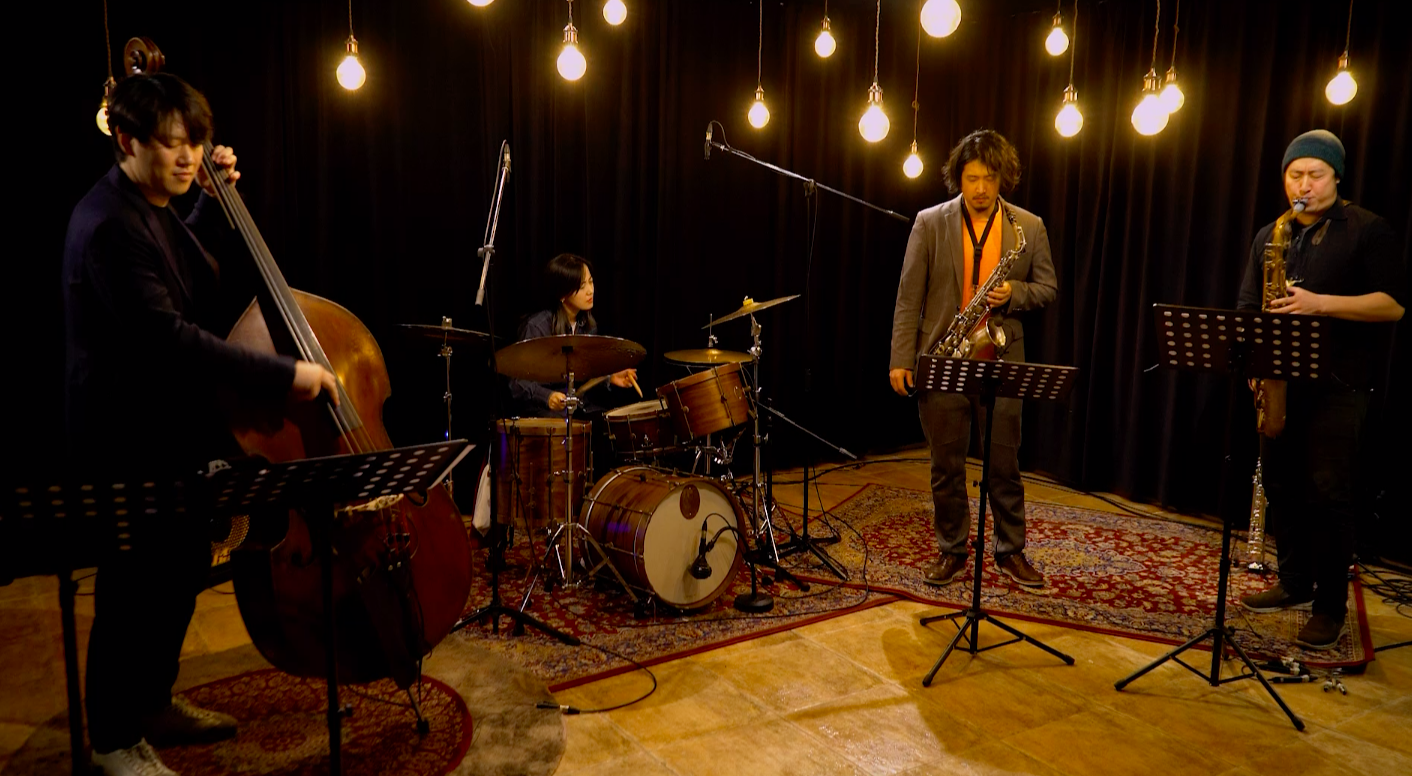 |
| ⓒ Soojin Suh Chordless Quartet |
Do you have a role model?
There are many musicians I like and admire. But every creator needs to do something new. So I couldn’t have a role model because I must not imitate others. That may be a curse because while working, I can’t listen to my favorite music... Once I’m exposed to it, I end up making similar music.
This showcase will be an online one, right?
Right. It is actually a huge opportunity to be selected for the showcase. Those from international festivals and record labels attend the showcase so I may have a chance to sign a contract for recording, to schedule a tour or to start an artistic activity under an agreement. It has been like that. So when I was selected, I stopped everything and just focused on producing my album. But it is regrettable to showcase my performance online.
I hope that the pandemic subsides soon... Do you have anything to say before we wrap up this interview?
I became a jazz lover because the genre freely accepts different cultures, which is quite attractive. Consequently, a variety of cultures have been absorbed into jazz. Today, many people understand that the term “jazz” doesn’t refer to the traditional music genre anymore. But very often in Korea, “jazz” still seems to be viewed from a narrower perspective. That is why I avoid using the word “jazz.” I don’t want to be trapped in the term. When introducing myself in Korea, I try not to call myself a “jazz musician.” Instead, I say, “I’m Soojin Suh, a Korean creative musician and drummer.” In fact, a “drummer” is often considered a session musician in Korea so I also make great efforts to do away with such a stereotype. So I would like you to call me a “Korean creative musician.”
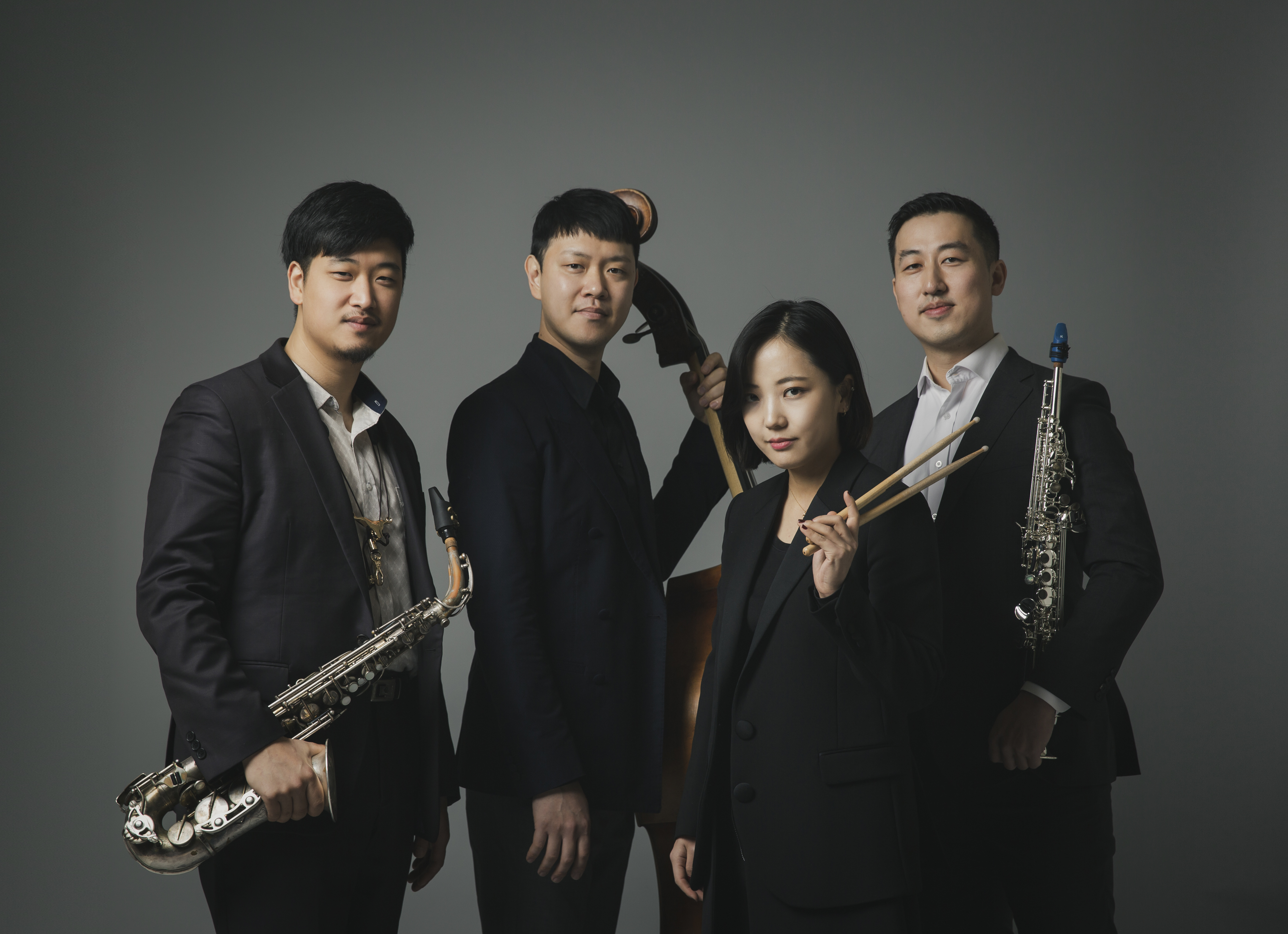 |
| Soojin Suh Chordless Quartet ⓒ Seung Yeol Nah |
She is right. Jazz is referred to as “music of freedom.” Its characteristic and identity consist in free improvisation without any fixed form. But many people tend to limit “jazz” to something they feel familiar with. In that sense, the music pursued by Soojin Suh would definitely be “jazz” even though many Koreans still have a long way to go before they understand that.








 PREV
PREV
.jpg)
.jpg)
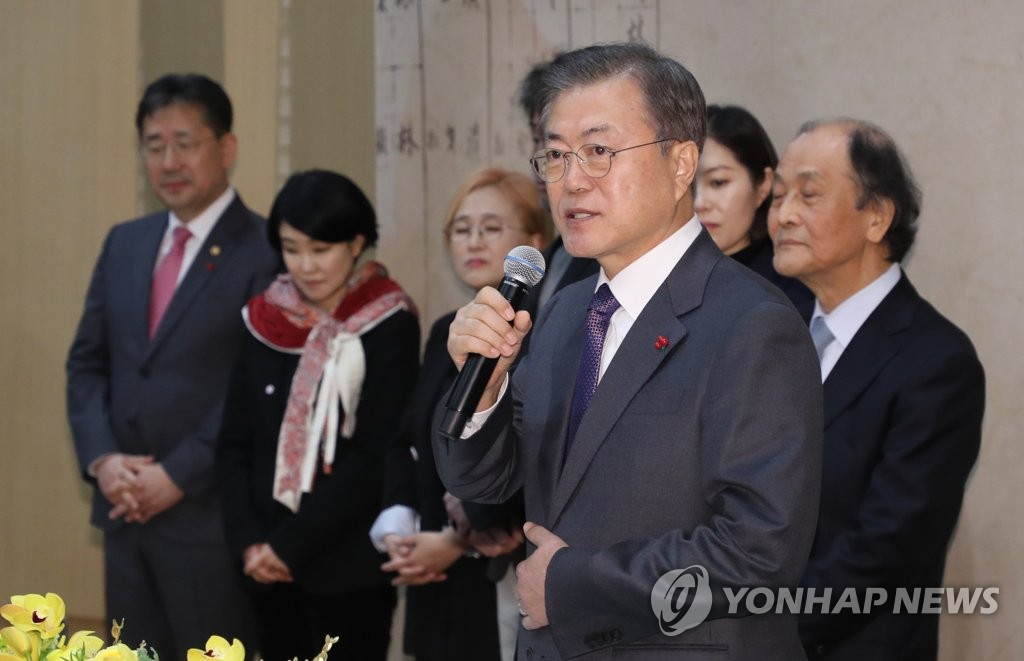
.jpg)
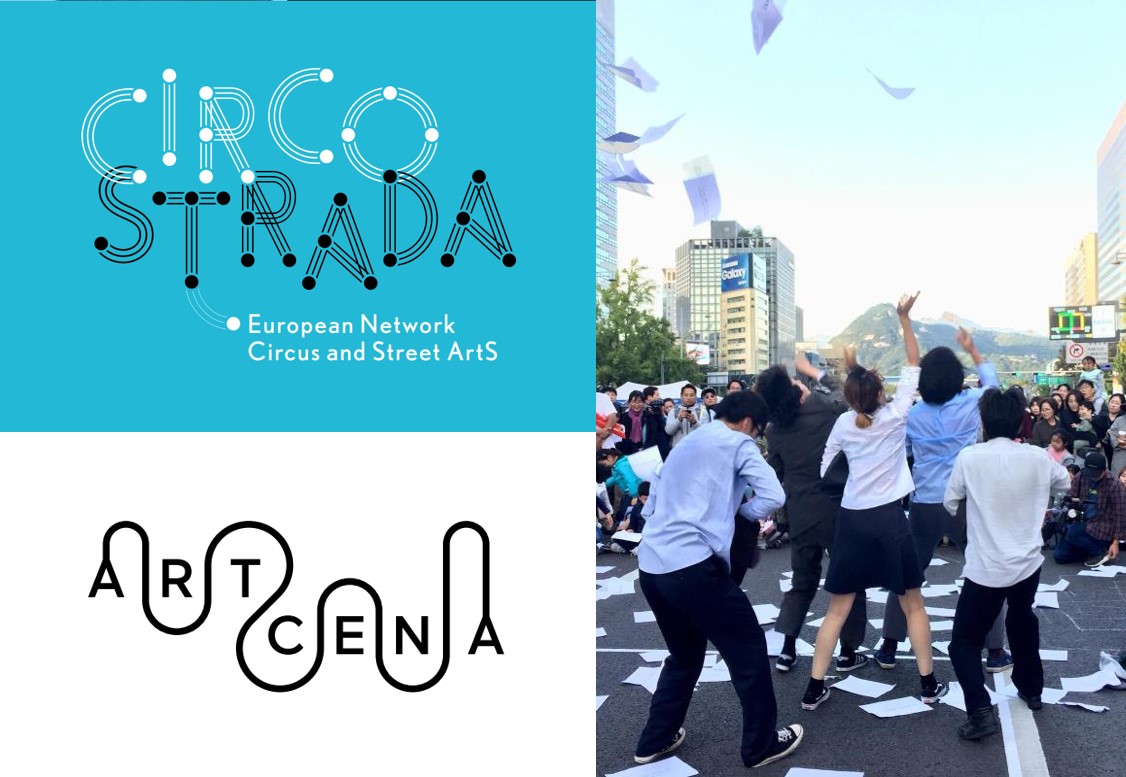
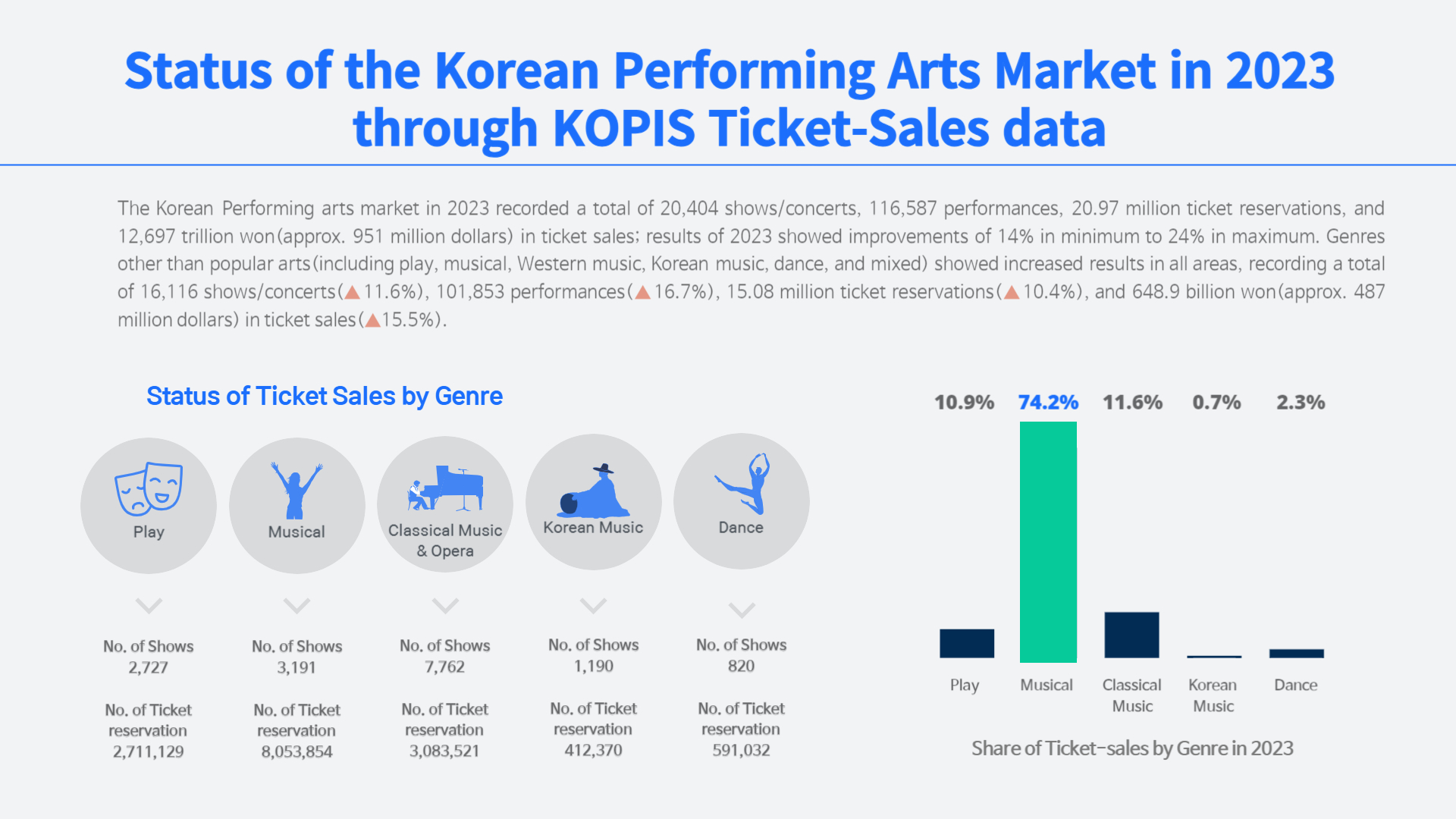
.jpg)
.jpg)
.jpg)
.jpg)











